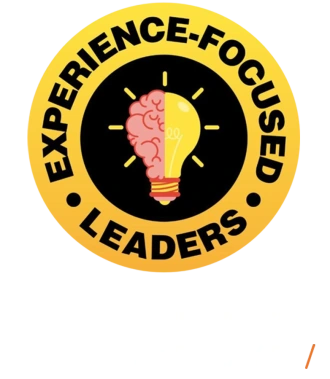Listen to the Podcast Episode on Your Favorite Platform

.svg.png)

Simplify, Pique Interest, and Progress Gradually
.png)
One of the top bits of advice I give founders all the time is to make your intro request email as short as humanly possible. A mistake I see is founders will put their entire history in the intro email — five paragraphs of dense text and then attach a 45-megabyte PowerPoint. And they're wondering why they're not having much luck on their fundraising. (Nathan Beckord )
(00:00-07:42)
Nathan Beckord talks about the importance of keeping communication with investors simple and concise. He advises startups to avoid overwhelming investors with lengthy emails or attachments, as busy investors often skim through emails quickly.
Alex compares pitching to investors to dating, highlighting the need to pique interest gradually rather than providing too much information upfront. He suggests offering teasers or summaries that encourage investors to learn more.
Nathan agrees, stating that building a relationship with investors involves gradually providing more information as the relationship progresses. This approach allows startups to customize their communication to different investors' interests, providing relevant information at each stage of the process.
.png)
Efficient Investor Relations: Time Management and Feedback Navigation
.png)
I think the danger is that the founders pivot their startups based on every bit of feedback. You can really damage your startup by doing that. Just look for patterns, take it all with a grain of salt, take it in, meditate on it a little bit, but don't necessarily always act on it. (Nathan Beckord)
(07:42-15:15)
In this podcast segment, Alex and Nathan discuss the dynamics of fast-paced deal-making and managing investor feedback effectively.
Nathan emphasizes the challenge of balancing time constraints while reaching out to potential investors. He advises founders to prioritize researching and qualifying investors to avoid wasting time on incompatible leads.
The conversation shifts to the importance of aligning with investors who have a genuine interest in the startup's industry or sector.
Alex draws parallels between investor relationships and enterprise sales, highlighting the importance of targeting investors who understand the opportunity rather than spending time educating them.
They delve into the complexity of managing conflicting feedback from investors. Nathan suggests identifying patterns in feedback and focusing on areas where consistent concerns arise, while being cautious not to pivot the startup based on every piece of advice.
Both agree on the significance of prioritizing customer feedback over investor opinions, as customers are the ultimate drivers of success. They also note the unique perspective of having VCs as potential customers, offering a distinct approach to relationship building.
.png)

From Idea to Innovation
.png)
Sometimes that's like keeping up with competitors, but other times it's something a little bit more innovative where customers are like, “Oh, it'd be so cool if I could do XYZ. When we start to see that pattern, then we figure out how much time it will take to build it, what kind of business impact it will have, and whether it could actually leap us forward a little bit. (Nathan Beckord)
(15:15-22:58)
Nathan shares a personal experience of receiving advice from a VC to build a backend platform for portfolio management, which ultimately proved unsuccessful. He contrasts this with the organic demand from VCs using their product, FounderSuite, leading to the development of Fundingstack.
The discussion underscores the importance of prioritizing customer behavior over mere ideas, highlighting that customer usage signals true market demand. They emphasize the value of allowing customers to guide product development, as they are the ones using the product in real-world scenarios.
They also delve into the challenges of rolling out new products and features effectively. Nathan acknowledges the limitations of resource constraints but stresses the importance of identifying patterns in user requests and prioritizing features that align with market expectations.
However, they admit to facing difficulties in effectively communicating new features to existing and potential customers. Nathan outlines their current strategies, such as email newsletters and webinars, but expresses a desire to improve in this area.
.png)
Insights from How I Raised It: Fundraising Strategies and Relationship Building
.png)
Interviewing other people about how they raise capital, I learned so much, especially during the first year of the podcast. I probably learned more in that first year than in 5-10 years of raising capital. (Nathan Beckord)
(22:58-29:53)
Alex highlights the importance of connecting product features to real problems faced by customers, emphasizing the role of product marketers as early adopters. He draws parallels with Salesforce's organization of features into themes, facilitating user understanding and adoption.
Nathan reflects on the evolution of the "How I Raised It" podcast and its impact on his understanding of fundraising.
The conversation also delves into the relationship aspect of fundraising, likening it to a sales process driven by building trust and rapport with investors. Nathan shares anecdotes of founders who achieved rapid fundraising success through intense dedication and hustle, breaking the traditional fundraising mold.
Alex raises the challenge of balancing relationship building with the limited bandwidth of investors. They explore strategies such as personalized touchpoints, updates, and leveraging digital platforms like Zoom for remote interactions.
.png)

Building Investor Relationships: Using Downtime and Effective Updates
(29:53-33:07)
The speakers discuss practical strategies for nurturing investor relationships, even when not actively fundraising.
Nathan talks about utilizing downtime effectively: reaching out to investors while traveling or attending events. By making the effort to connect, even in casual settings, founders can maintain and strengthen relationships over time.
Another key strategy highlighted is the use of investor updates. Nathan advocates for regular, concise updates on business progress, sent out monthly or bi-monthly. These updates serve to keep investors informed about the company's achievements, growth, and milestones, fostering engagement and rapport.
Towards the end of the segment, Nathan shares information about the tools available for startups and investors on Foundersuite and Fundingstack platforms. He encourages listeners to use these resources to simplify and enhance their fundraising and investor management processes.
.png)
Check the the episode's Transcript (AI-generated) HERE.
Other Episodes

Godard Abel | CEO of G2
S 01 | Ep 6 Where You Go for Software: Reach Your Peak


Dean Stocker | CEO of Alteryx
S 01 | Ep 8 Turning Your Customers Into Your Biggest Champions


Peter Fader | Co-Founder of ThetaCLV
S 01 | Ep 10 Turning Your Marketing Into Dollars

Author

Experience-focused Leaders is the #1 Multimedia Podcast! We talk to senior business & tech leaders about the experiences that move forward organizations, customers and society at large. True to form, we mix audio, video, web and eBook formats to turn these authentic conversations into personalized nuggets you'll remember & use.



.png)
